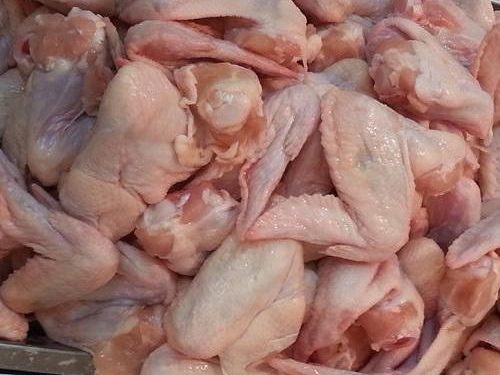A sample taken from a consignment of frozen Chicken from Brazil tested positive for coronavirus, according to authorities in the southern Chinese city of Shenzhen.
The virus was detected from chicken wings in Longgang district of Shenzhen, the municipal government said in a statement. Officials did not name the brand.
Many national health authorities and the World Health Organisation (WHO) have stated the likelihood of catching Covid-19 from food is low.
Shenzhen health authorities traced consumers who came in contact with the food and they all tested negative. The meat has since been sealed off.
Chinese authorities are not tracking other related products from the same shipment for testing.
Brazil recorded 3.1 million Covid-19 cases ever since the pandemic started and they are second to the United States in terms of infections.
In a related incident in China, the national broadcaster CCTV reports that coronavirus was found in a packaging of shrimps imported rom Ecuador, another South American country at a restaurant in eastern Anhui.
There have been seven incidents of coronavirus being found on the packaging of imported sea food in China since July according to state media.
These recent events have started a debate on whether coronavirus can be transmitted through food packages. Some social media accounts in China are calling for the ban on imported food.
‘No evidence’ of food transmission
The WHO says it is “highly unlikely that people will contract Covid-19 from food or its packages.”
According to the Centre for Disease Control (CDC), the risk of infection by the virus from food products, food packaging, or bags is “thought to be very low.”
Both organizations point out that the coronavirus spreads mostly person to person through respiratory droplets when an infected person coughs, sneezes or talks.
While it is possible to catch Covid-19 by touching a surface or object — including food or food packaging that has the virus on it — and then touching your mouth, nose, or possibly eyes, it is not thought to be the main way the virus spreads, according to the CDC.
“There is no evidence to date of viruses that cause respiratory illnesses being transmitted via food or food packaging. Coronaviruses cannot multiply in food; they need an animal or human host to multiply,” the WHO says.
David Hui Shu-cheong, a respiratory medicine expert at the Chinese University of Hong Kong, said the imported food products that tested positive in China were almost certain to have been contaminated during packaging.
But he said it doesn’t necessarily mean that they’re infectious — the nucleic acid tests could be picking up the RNA of dead virus. These remnants of the virus are known to have caused false positive results on patients who have recovered from the coronavirus, such as in South Korea.
If the virus taken from the food products can be grown in labs, however, then they are infectious, he said, adding that the coronavirus can survive freezing temperatures and still be active when thawed.










